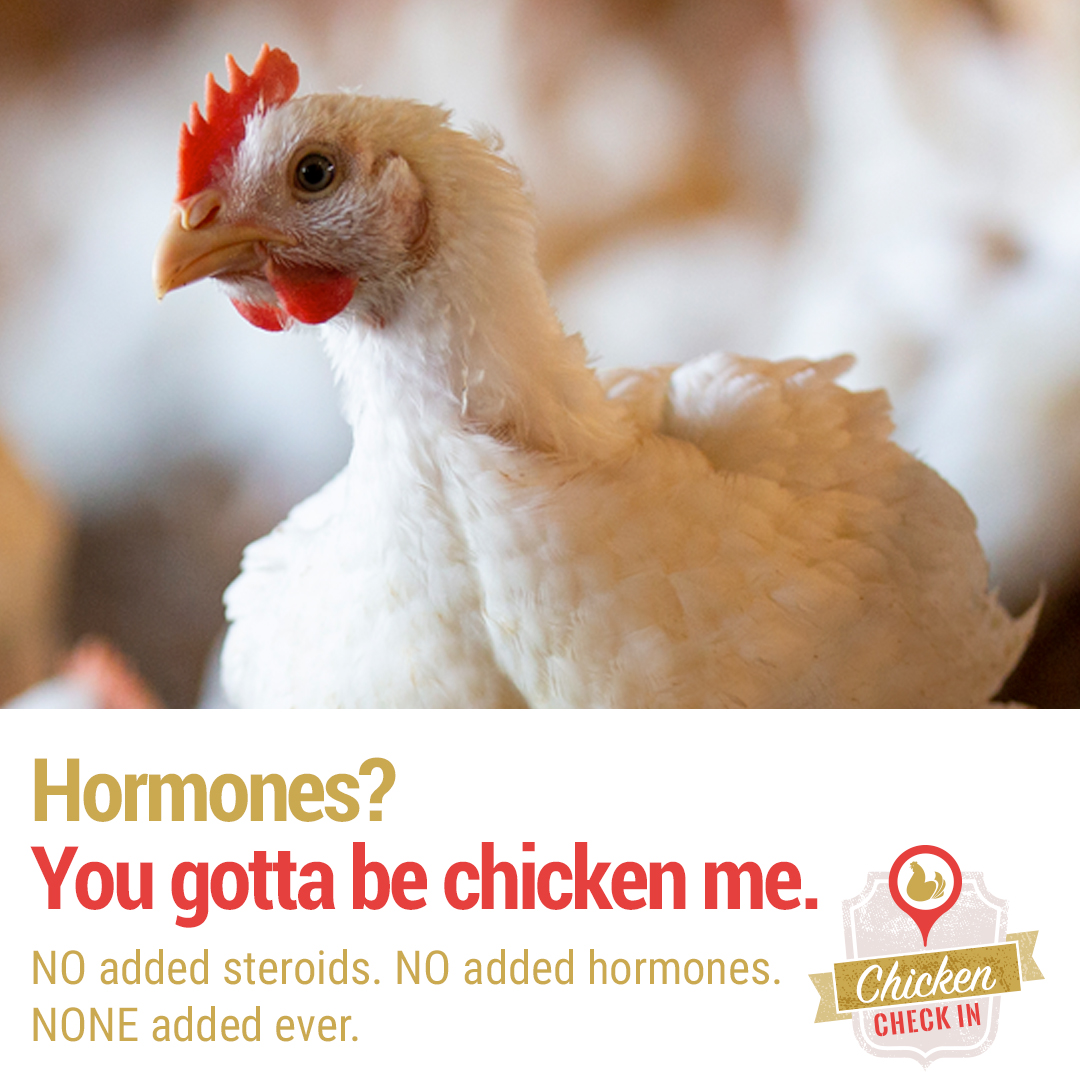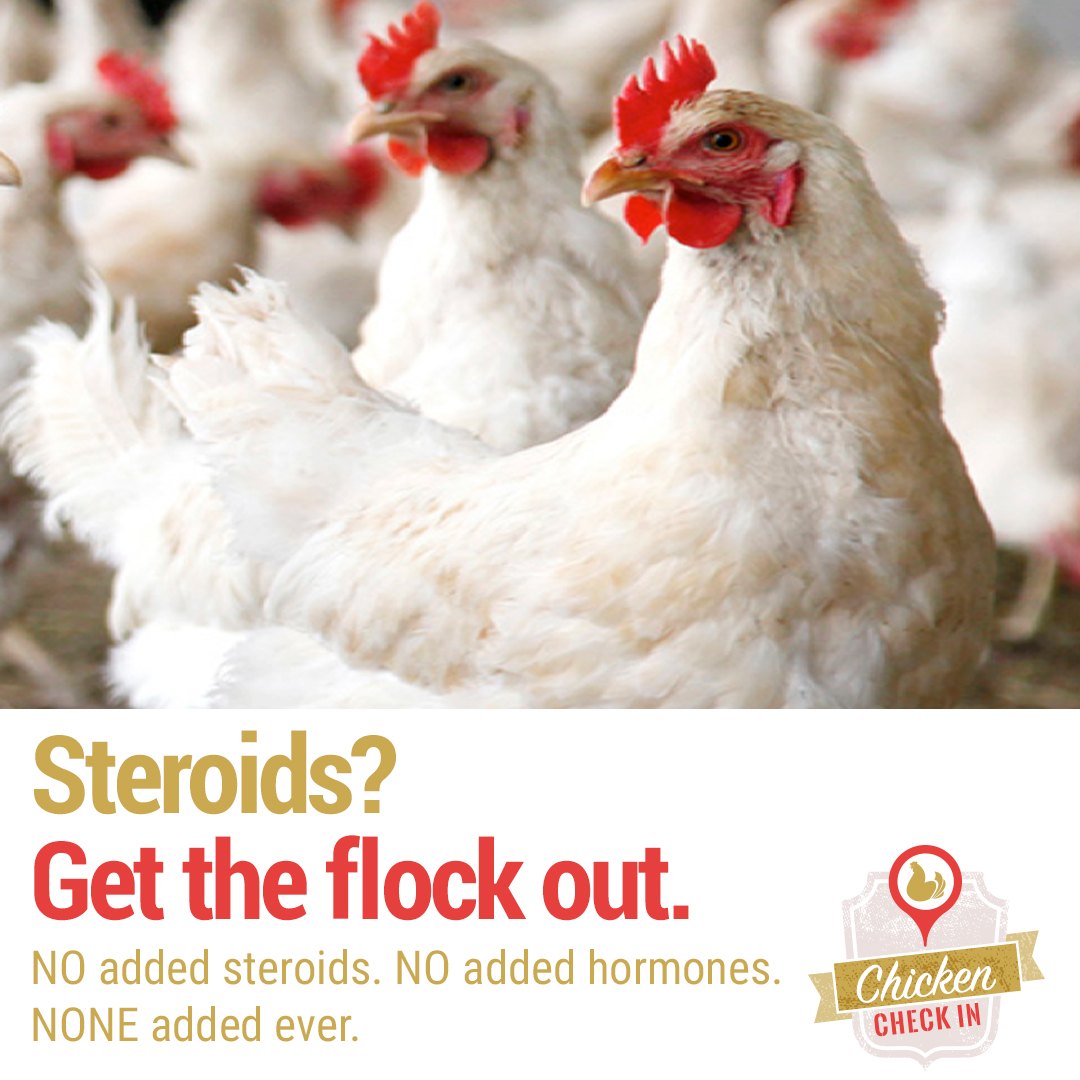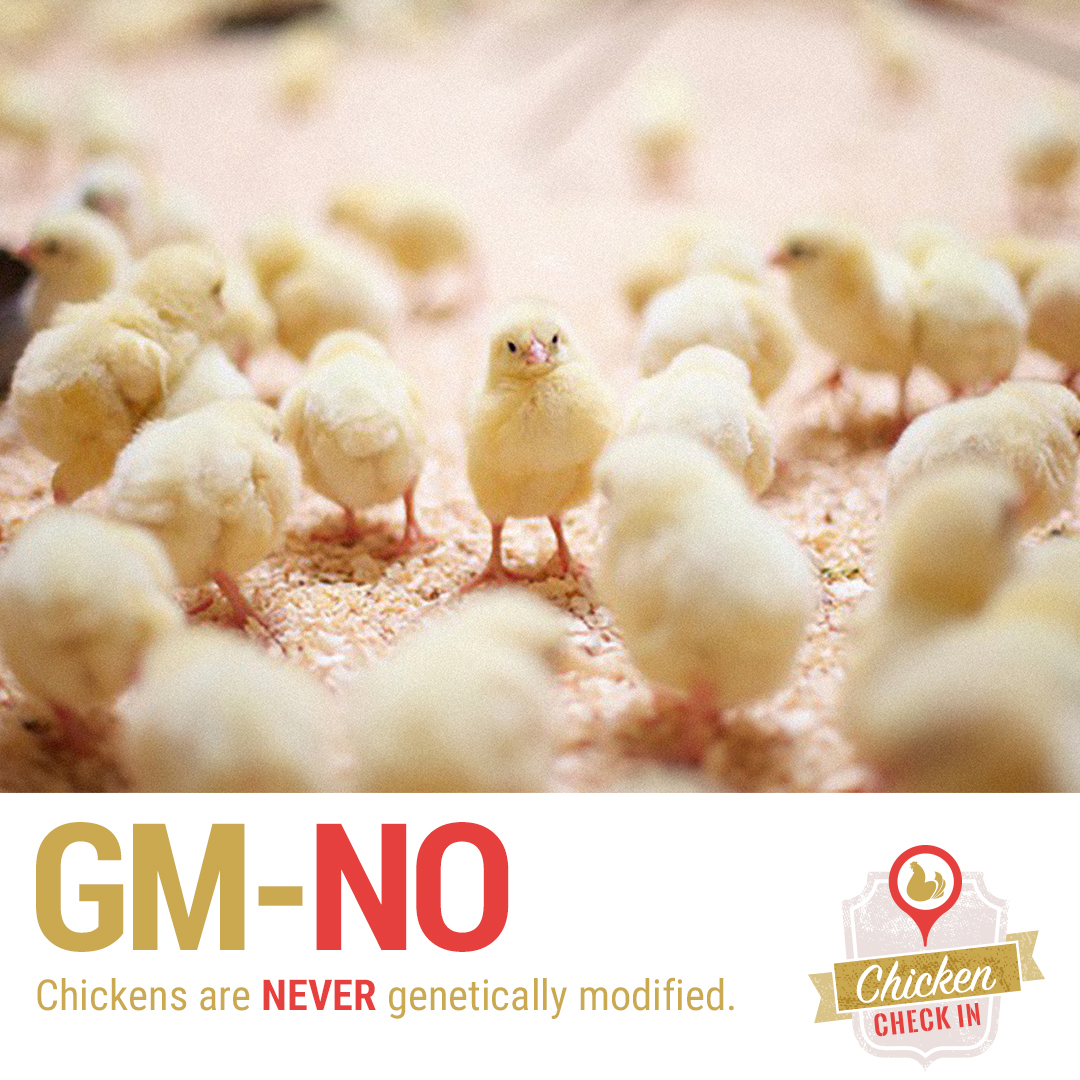Get The Facts: The Truth About Hormones and Steroids in Chicken
It can be challenging to find all the right answers about how chickens are raised, fed and produced, but you’ve come to the right place.
We’re countering the common myths people often believe about chicken production with cold, hard facts. Read ‘em here!
Myth #1: Broiler chickens are pumped with hormones and steroids

Fact: Federal regulations prohibit the use of added hormones and steroids in all poultry.
You may have heard some chatter about chickens being given hormones or steroids throughout their lives to make for larger birds, but that’s just not the case.
The truth? No chicken sold or raised in the U.S. is given added hormones. All hormones and steroids in poultry have actually been banned by the U.S. Food and Drug Administration (FDA since the 1950s.
Chickens naturally produce growth hormones like progesterone, testosterone and estrogen, just like humans do, but the birds are not given added supplements that impact their size or appearance.
Why aren’t hormones or steroids used in chicken?

Not only are hormones and steroids illegal in chicken production, but there is no logical reason to pump poultry with added injections. It’s expensive, it’s a tedious process of injecting each individual bird and adding hormones and steroids is simply not needed. The birds grow naturally to market weight in about 7-9 weeks because of advances in husbandry, technology, nutrition and breeding.
Interested in learning more about why hormones aren’t given to chicken? Read all about it here.
But why are chickens today bigger than they were 50 years ago?

There’s no manipulation from the chicken industry. To get straight to the point, there are no GMO chickens commercially available.
But your eyes aren’t fooling you, chickens today may be bigger than before. For years, farmers have been breeding birds with the most desirable qualities to ensure the healthiest, strongest flocks, but they’re not genetically modified.
Want to learn more about how chicken is raised and produced in the United States? Check out our Life on the Farm video series.